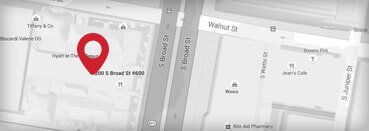During much of the 20th century, hospitals did not have a duty to treat patients who entered emergency departments. Without any given reason, they could refuse to treat certain patients. The practice of “patient dumping” arose from that lack of duty.
Patient dumping refers to situations when hospitals deny emergency medical screening and stabilization services. It also refers to instances when a hospital transfers an individual to another hospital after discovering that the individual does not have insurance or a means to pay for treatment.
To correct that wrong and in an effort to ensure that individuals received needed emergency care, in 1986 Congress enacted EMTALA, which was designed to protect all individuals seeking evaluation or treatment at hospital emergency departments that participate in Medicare.

The law was largely unfunded at that time, but in 2000 Congress made EMTALA enforcement a priority and began issuing penalties for violation of the Act. Updates to the law were made in 2005 and 2006.
A Duty of Care
The law imposes the following four basic statutory requirements for hospitals:
- Medical Screening: Hospitals must provide an appropriate medical screening examination to any individual who arrives at the emergency department seeking medical treatment;
- Stabilization: If it is determined that an emergency medical condition exists, hospitals must provide further examination and treatment to stabilize the medical condition;
- Appropriate Transfer: If the hospital cannot stabilize the patient, the hospital must provide an appropriate transfer to another medical facility; and
- Recipient Hospital: Hospitals with specialized capabilities, regardless of whether they have a dedicated emergency department, are required to accept an appropriate transfer from hospital s that lack the capability to treat the patient.|
A Private Cause of Action – Know Your Rights
To enforce EMTALA, Congress created two statutory rights of action:
- The first right of action is that of a patient against a Medicare-participating hospital; and
- The second is a right of action by a medical facility that received an improperly transferred emergency patient or woman in labor against the transferring hospital.
Thus, if a hospital harms a patient by violating the law, or causes another medical facility to incur financial loss, each have a private cause of action, which allows them to file a lawsuit in federal court—within two years of the violation.
Importantly, however, EMTALA does not serve as a substitute for state law on medical malpractice.
Damages for Patient Personal Injuries
Congress deferred to state law in adopting EMTALA’s damages provision, stating that the damages in any suit are subject to the personal injury law of the state in which the hospital is located.
What to Expect from the Hospital
With the duty of care defined in EMTALA, Medicare-participating hospitals must provide a medical screening exam to any individual who enters the emergency department and requests examination or treatment for a medical condition. If the hospital determines that an individual has a medical emergency, it must then stabilize the condition or provide for an appropriate transfer to another medical facility. The hospital is obligated to provide these services regardless of the individual’s ability to pay and without delay to inquire about the individual’s method of payment or insurance status.
What to do When the Unexpected Occurs
If you believe you or a relative have been a victim of patient dumping, know that you have substantial federal rights. Among others you have the right to prompt provision of all medical records. Bypassing EMTALA is serious violation of the law with equally serious public safety considerations. If you have been wrongly treated by a hospital in this regard, you should seek out an experienced medical malpractice attorney to assist with a review of these records for possible federal statutory violations.








